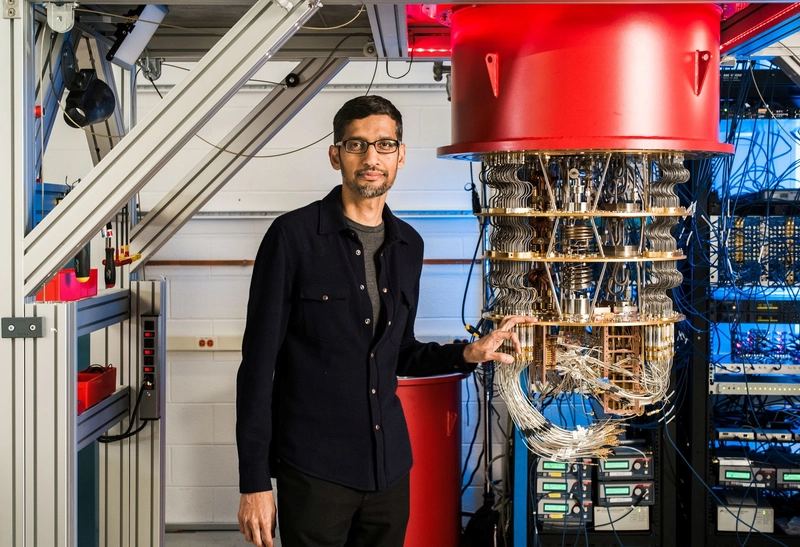Advertisement
Throughout history, humanity's technological journey has been one of constant evolution, from the simplicity of our early tools to the complexity of modern-day marvels. But as we push the boundaries of innovation, we inevitably encounter limitations. Today, we stand at the precipice of a new era in computing – one defined by the enigmatic realm of quantum mechanics.

All images are copyright to their respective owners.
Advertisement
Listen to the audio
At the heart of our current computing technology lies the transistor, a fundamental building block that has fueled the exponential growth of computational power over the decades. However, as transistors approach the size of atoms, we are confronted with a daunting challenge – the constraints imposed by the laws of quantum physics.
To comprehend the implications of this challenge, let's delve into the basics of computing. At its core, a computer operates through the manipulation of binary digits, or bits, represented as 0s and 1s. These bits are processed by logic gates, which perform elementary operations such as AND or OR. Through the combination of logic gates, complex functionalities emerge, allowing computers to execute a myriad of tasks.
Yet, as transistors shrink to the atomic scale, they become susceptible to quantum phenomena such as tunneling, where particles traverse barriers seemingly forbidden by classical physics. This phenomenon undermines the reliability of traditional computing architectures, prompting scientists to explore alternative paradigms – enter quantum computing.
In contrast to classical bits, quantum computers utilize quantum bits, or qubits, which can exist in a state of superposition, embodying both 0 and 1 simultaneously. This inherent duality enables quantum computers to perform vast computations in parallel, dwarfing the capabilities of classical counterparts.
Furthermore, qubits can exhibit entanglement, a phenomenon where the state of one particle instantaneously influences another, regardless of distance. This remarkable property imbues quantum computers with unprecedented computational power, promising breakthroughs in fields ranging from cryptography to drug discovery.
Quantum computing's potential is not without its challenges, however. Harnessing the delicate nature of quantum states requires meticulous control and error correction, posing formidable obstacles on the path to practical implementation. Yet, the rewards are tantalizing – the ability to tackle complex problems with unparalleled efficiency.
In the realm of cybersecurity, quantum computers threaten to disrupt established encryption protocols, rendering traditional safeguards obsolete. Conversely, they offer the promise of enhanced data analysis, revolutionizing fields such as database searching and molecular simulations.
As we venture into this uncharted territory, the future of quantum computing remains uncertain. Will it herald a paradigm shift in technological innovation, or will it remain a specialized tool in the arsenal of computational science? Only time will tell.
In conclusion, the journey towards quantum computing represents a testament to humanity's insatiable curiosity and relentless pursuit of knowledge. While the road ahead may be fraught with challenges, the rewards promise to reshape the landscape of computing and unlock new frontiers of discovery. As we stand on the cusp of a quantum revolution, the only certainty is that the limits of human technology are yet to be defined.
Throughout history, humanity's technological journey has been one of constant evolution, from the simplicity of our early tools to the complexity of modern-day marvels. But as we push the boundaries of innovation, we inevitably encounter limitations. Today, we stand at the precipice of a new era in computing – one defined by the enigmatic realm of quantum mechanics.
For more blog posts, please visit our page daily luvnet.com.
Advertisement
Comments